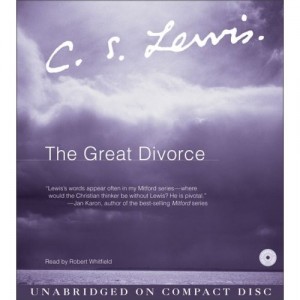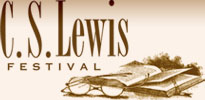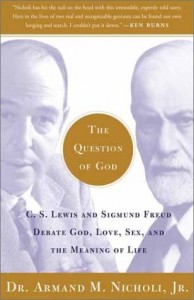 This Thursday pub group will meet at the Soup Spoon Cafe (Michigan St.) to talk about chapter 8 in The Question of God: C.S. Lewis and Sigmund Freud Debate God, Love, Sex, and the Meaning of Life. This week’s chapter is titled Pain: How Can We Resolve the Question of Suffering? Join us for what is sure to be an interesting conversation.
This Thursday pub group will meet at the Soup Spoon Cafe (Michigan St.) to talk about chapter 8 in The Question of God: C.S. Lewis and Sigmund Freud Debate God, Love, Sex, and the Meaning of Life. This week’s chapter is titled Pain: How Can We Resolve the Question of Suffering? Join us for what is sure to be an interesting conversation.
Solving the Problem of Suffering at the Pub
C.S. Lewis and Pacifism: A Failure of the Imagination
On Memorial Day, I preached a sermon comparing C.S. Lewis and Martin Luther King Jr. and their various perspectives on war. I adapted the sermon, and it has been posted on Harper One’s C.S. Lewis blog. Check it out below.
Whenever one disagrees with C.S. Lewis, there is sure to be much fear and trembling. I am a Christian today in large part due to Lewis’ writing, and, if he had the opportunity to respond to me on the subject of pacifism, I suspect I would meet the long shadow of the Great Knock! A fearsome idea if there ever was one.
Read more…
The Question of God Small Group
How each of us understands the meaning of life comes down to how we answer one ultimate question: Does God really exist? In concert with the upcoming Easter series, Questions, Tom Arthur (pastor) will be leading a small group that will be watching and discussing the video series: The Question of God. The Question of God is a PBS series exploring the similarities and differences between Sigmund Freud and C.S. Lewis and how they answer such fundamental topics such as Science or Revelation, Why Believe?, Miracles, Suffering and Death, and more. Each weeks discussion requires no preparation. Just show up, watch the video, and discuss. It will take place on Sunday nights from 6:30 to 8:00PM at the Arthur’s house (5058 Glendurgan Ct., Holt, MI, 889-5540) beginning on April 11th. Please RSVP to Tom at tomarthur@sycamorecreekchurch.org or sign-up at the book table.
The Great Divorce by C.S. Lewis
 The Great Divorce by C.S. Lewis
The Great Divorce by C.S. Lewis
Audio Book (read by Robert Whitfield)
February 27, 2010
© Tom Arthur
Rating: 10 out of 10
This is the best audio book I have ever listened to. The reasons for this are two-fold. First, C.S. Lewis’ The Great Divorce is a masterfully imaginative reflection upon heaven and hell. Second, the reader, Robert Whitfield, is absolutely enthralling. Let me begin with the later.
I have never before listened to such a creative portrayal of a novel brought to life in an audio book. Whitfield makes each and every character in The Great Divorce jump off the page, or out of your speakers. Every character has a different voice and Whitfield even convincingly pulls off all the different female characters. He moves from a Scottish brogue to an Irish accent and back to an English inflection seemingly effortlessly. His voice was like ear candy. I have never before looked up a reader to see what other audio books he has read. I plan to listen to several of them, especially the novels.
Now to the content of The Great Divorce. The idea of The Great Divorce is a simple one: a bus departs daily from hell to heaven. Those who are in hell may ride it any time they want. What they find in heaven isn’t quite what they expect. Each person from hell meets someone in heaven whom they knew in their life. These past acquaintances, friends, or family members attempt to help them adjust to heaven. Most of those from hell like hell better, and decide to go back. Their reasons for doing so are manifold, and it is here that the reader sees Lewis’ genius as an observer of human nature.
Most people in hell don’t want to give something up to stay in heaven. The character of what they find in heaven is magnitudes better than what they find in hell, but they have become so familiar with their own flaws that put them in hell that they are loath to give them up. Those characteristics and values have become so much a part of their identity that they seem lost without them. Take for example the theologian who likes the idea of God more than God, Godself. Or the mother whose son died and prefers “loving” her son by grieving rather than loving her son by giving him up. Or the crooked manager who thinks he was a good and decent person when he really was not. Maybe one of the most tragic is the husband who always plays the martyr to his wife and isn’t willing to give up the grudges that he holds against her.
There are, of course, moments when those who are visiting heaven have a break through. One such man has a lizard on his shoulder that is hurting him. He meets an angel who offers to kill it. After much debate, the man finally allows the angel to kill the lizard. It is cast to the ground and arises as a great stallion. The man then rides the stallion off into deeper heaven. We are told that in heaven the fleshly passions are driven by the person rather than the person driven by fleshly desire.
In the preface Lewis claims that this book is not a theological work about heaven and hell, but I think Lewis is selling himself short. Certainly the details are all a work of Lewis’ imagination, but the basic premise that heaven is a place some people will choose not to like seems biblical to me. The emphasis of our culture is toward a universalist desire when it comes to heaven. We don’t want anyone in hell, but what makes us think that someone who didn’t like God when he or she was alive will like God any more when met face to face? I suspect what they find will terrify them. In this sense, they choose hell over heaven. The Great Divorce helps us wrap our minds around a conception of heaven and hell that is both realistic in its judgment of humanity and at the same time compassionate. Between Lewis’ notion of heaven and hell and our culture’s exists a great divorce.
 Note:
Note:
While living in Petoskey, I helped found the annual Northern Michigan C.S. Lewis Festival. This festival began as a month-long collaborative event between the arts, education, and faith communities. While its focus has remained in the fall, the festival has since my days leading it expanded to host events year-round. A trip to Narnia and the North is well worth it.
Currently Reading/Listening:
Misquoting Jesus (audio book) by Bart Ehrman
Playing the Enemy (audio book) by John Carlin
American Saint: Francis Asbury and the Methodists by John H. Wigger
An Introduction to Pastoral Care by Charles V. Gerkin
Gulliver’s Travels by Jonathan Swift


Recent Comments